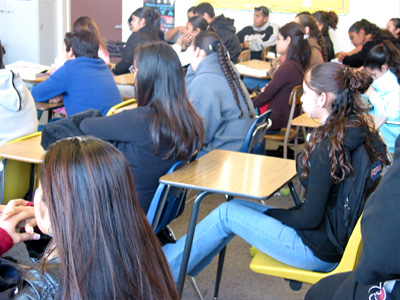
Across the country, politicians are responding to the inability of a population devastated by government-induced recession to support governments’ spending at levels they have grown accustomed to by threatening the closure of schools, firehouses, and other high-profile, highly-valued government “services.” I have opined elsewhere on the reasons that such high-profile programs—rather than the thousands of highly-paid bureaucrats whose
functions are absolutely inessential—are identified first for cutting as the means to cut spending. Suffice it to repeat that such extortion has worked before and politicians can only hope it will continue to allow them to line their pockets at the expense of people who actually earn their money.The recent special election in California had various propositions on the ballot promising budget fixes “for the schools.” Like every tax and borrowing provision before them, these tax increases won’t fix the schools. In fact, despite widely disparate policy recommendations, virtually every non-government education researcher, from Stanford University to the Heritage Foundation, agrees that money is not the problem: in sum, government education is Just Plain Dysfunctional.
So why does the idea of a “public school” education, so clearly oxymoronic, remain such a sacred cow? Every argument used throughout history for the establishment of State-sponsored education has been rooted in ideology: the utopian ideal of creating the good citizen, from Francis Bacon:
And it is without all controversy that learning doth make the minds of men gentle, generous, malleable and pliant to government; whereas, ignorance makes them churlish, thwart, and mutinous.
Government spending on K–12 public education in America is at an all-time high. The national average current expenditure per student is around $10,418. Real spending per student has increased by 23.5 percent over the past decade and by 49 percent over the past 20 years. Meanwhile, test scores and graduation rates have remained low and flat, and the gap between whites and non-whites has remained wide and essentially unchanged.
If the government can’t teach reading and writing and math for $10,000 per year per student, why would anyone want them to have more? Isn’t it time to just cut off government funding of education, eliminate the taxes supposedly collected for education altogether, and let the resources freed up be deployed far more effectively and creatively? Teachers and/or parents could privatize their schools (see our “Can Teachers Own their Own Schools?”), and the market and private associations could and would otherwise create myriad alternatives just as phone companies freed from the Ma Bell monopoly have put a cell phone with functionality unimaginable 20 years ago into the hands of every 13 year old in the country.
As Adam Smith knew, freed from a public school monopoly, people “would soon find better teachers for themselves than any the state could find for them.”
